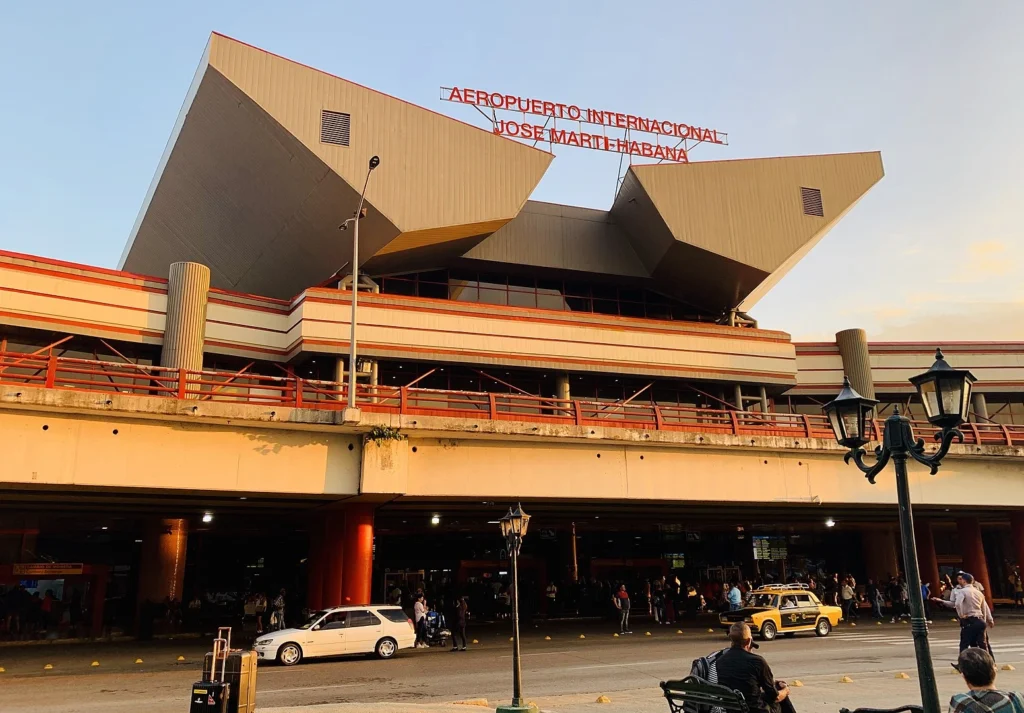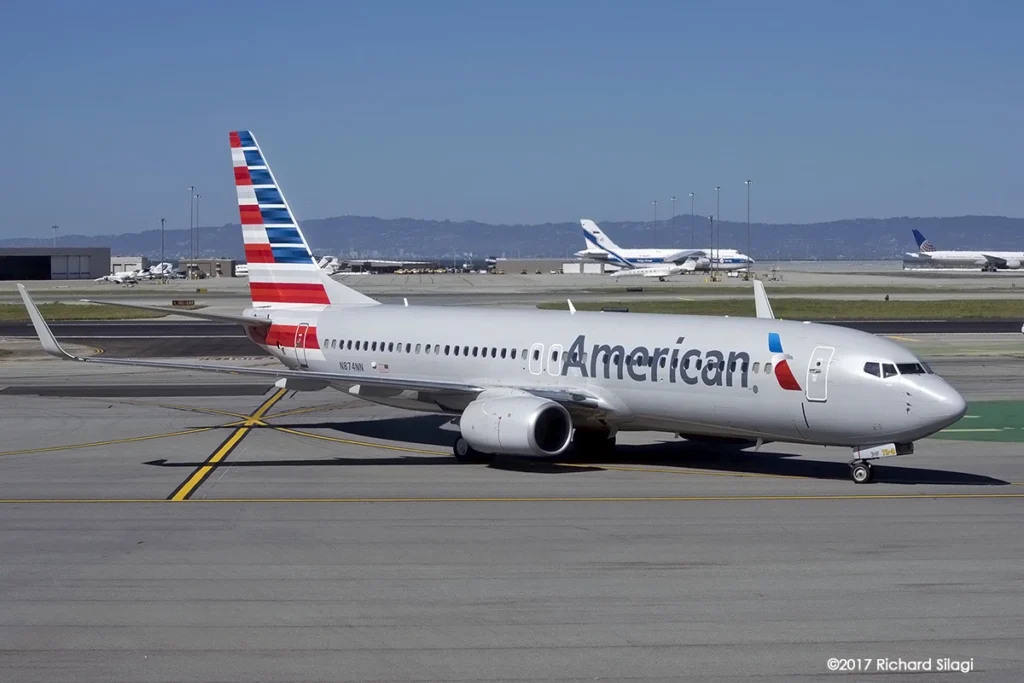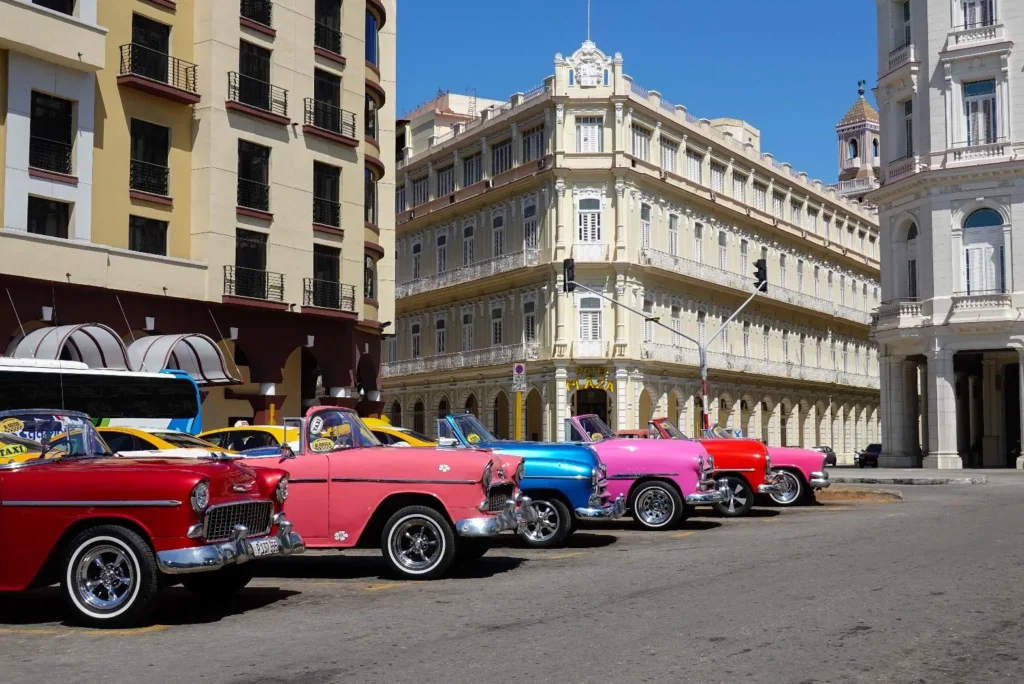
HAVANA- A Cuban-American man’s lawsuit against American Airlines (AA) over alleged “trafficking” in confiscated Cuban property will proceed, following a reversal by the 11th Circuit Court of Appeals. The disputed property is José Martí International Airport (HAV) in Havana, Cuba, the country’s primary international gateway.
José López Regueiro, a U.S. citizen since 2015, alleges that American Airlines violated the Helms-Burton Act by operating flights to and from Havana (HAV) — property he claims was unlawfully seized from his family during the 1959 Cuban revolution.
 Photo: By Tacorontey – Own work, CC BY-SA 4.0, https://commons.wikimedia.org/w/index.php?curid=87169253
Photo: By Tacorontey – Own work, CC BY-SA 4.0, https://commons.wikimedia.org/w/index.php?curid=87169253American Airlines Cuban Airport Lawsuit
The 11th Circuit unanimously ruled that Regueiro could sue under Title III of the Helms-Burton Act, which permits U.S. nationals to bring claims against companies profiting from confiscated Cuban property.
The panel overturned a previous dismissal by a Florida federal judge, clarifying that citizenship at the time of property confiscation is not required under the law.
The court found that Regueiro’s claim met the statutory requirements: he had inherited shares in CAISA, the Cuban company that owned José Martí International Airport, and was a U.S. citizen at the time of filing the lawsuit.
Circuit Judge Jill Pryor, writing for the panel, emphasized that the law “unambiguously” covers plaintiffs who became U.S. citizens after acquiring an interest in the property in question.
This ruling may have broader implications for other claimants who inherited confiscated Cuban assets and obtained U.S. citizenship after the fact, Court House News reported.
 Photo: By Richard Silagi – Own work, CC BY-SA 4.0, https://commons.wikimedia.org/w/index.php?curid=76300185
Photo: By Richard Silagi – Own work, CC BY-SA 4.0, https://commons.wikimedia.org/w/index.php?curid=76300185Legal Background and Key Arguments
Regueiro’s lawsuit was initially dismissed because he was not a U.S. citizen when the Cuban government seized the property, and his father — the original shareholder — was also not a U.S. national at the time.
However, the appellate court clarified that Title III only requires U.S. citizenship at the time of filing, not at the time of confiscation or acquisition.
American Airlines argued that Regueiro lacked standing because he owned only shares in a company that owned the airport. But the court cited a prior decision — de Fernandez v. Seaboard Marine Ltd — to reject this argument, affirming that shareholders can bring trafficking claims if the corporate assets were confiscated.
 Classic Cars in Cuba; Photo- Love Cuba
Classic Cars in Cuba; Photo- Love CubaImplications for U.S. Companies Operating in Cuba
This case serves as a warning to U.S. companies operating in Cuba without settling claims related to nationalized property. With this decision, the court reinforces that Helms-Burton lawsuits can move forward even when claimants acquired property rights before obtaining U.S. citizenship.
Attorney Andres Rivero, who represents Regueiro, called the ruling a victory for victims of property seizures. He emphasized ongoing legal efforts targeting corporations like American Airlines (AA) and Expedia for profiting from what they argue are stolen assets.
The case now returns to the district court for further proceedings, potentially paving the way for more Helms-Burton lawsuits involving Cuban properties and multinational corporations.
Stay tuned with us. Further, follow us on social media for the latest updates.
Join us on Telegram Group for the Latest Aviation Updates. Subsequently, follow us on Google News
American Airlines Mistake Costs Mom $3,674, Denies Refund
The post American Airlines Faces Lawsuit from Cuban Airport Ex-Owner appeared first on Aviation A2Z.

 4 miesięcy temu
4 miesięcy temu











